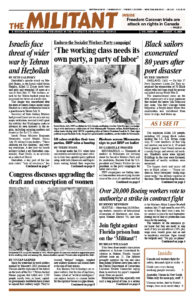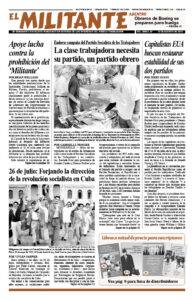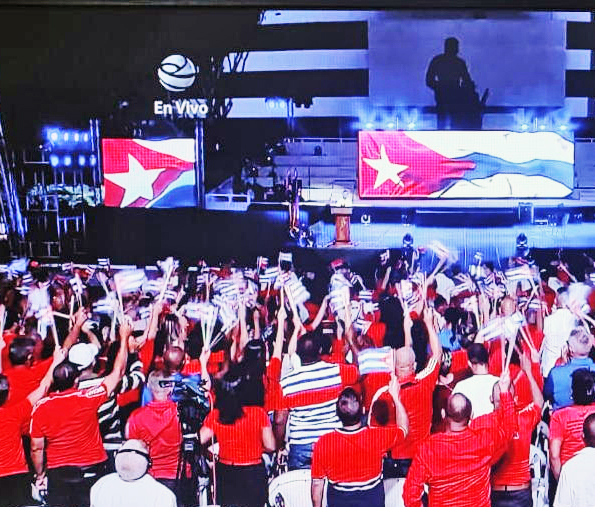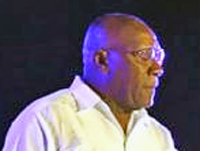Thousands of Cubans gathered in Sancti Spiritus July 26 to celebrate the 71st anniversary of the rebel assault led by Fidel Castro on the Moncada and Carlos Manuel de Céspedes garrisons in 1953. It was the beginning of constructing a movement capable of leading Cuban workers and peasants to power less than six years later.
“July 26 marked a decisive turning point in Cuba’s history,” Cuban Vice President Salvador Valdés Mesa, inset, the main speaker, told the crowd. It “defined the unwavering attitude we must maintain in face of dangers, challenges, and difficulties, however insurmountable they may seem.”
“The intensified blockade” facing Cuba today, he said, “together with the rest of the aggressive measures implemented against Cuba by the United States government, constitutes the fundamental cause of the current economic difficulties.
“There will always be little recognition for this people, who face the difficulties of daily life, without losing confidence that only socialism can overcome them with justice,” he said, “without leaving anyone abandoned to their fate.”
Quoting Castro, Mesa said, “We remain the same as we were on July 26, 1953, in one respect alone. We still have the same faith in the destiny of the homeland, the same confidence in the qualities of our people. We remain just as certain of victory.”
The event was attended by Cuban President Miguel Díaz-Canel, General of the Army Raúl Castro, Commander of the Revolution Ramiro Valdés, and José Ramón Machado Ventura, a combatant and doctor in the rebel Army Second Eastern Front and longtime leader of the Cuban Revolution.
Groups of supporters of Cuba’s revolution, including the Juan Rius Rivera Solidarity Brigade from Puerto Rico, joined in demanding the end of the economic, commercial and financial blockades imposed on Cuba by the U.S. government and the removal of Cuba from Washington’s “State Sponsors of Terrorism” list.



